Plenary Speakers
Thursday Morning (9:00-10:15)
Frank Bond, Ph.D., Goldsmiths, University of London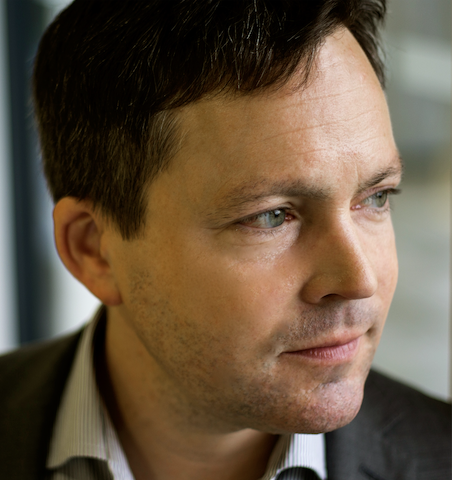
Frank W. Bond, PhD is Professor of Psychology and Management at Goldsmiths, University of London, where he is also Director of the Institute of Management Studies (IMS). Prior to establishing the IMS in 2011, Frank was Head of the Department of Psychology at Goldsmiths, and he began his academic career at University College London. For over 20 years, Frank has used randomised controlled trials and longitudinal studies to examine contextual behavioural science approaches and theories for predicting and influencing human health and performance in work, educational, community, and clinical contexts. He has also examined how individual differences-most notably, psychological flexibility-interact with organisational structures, processes, and strategies to enhance performance- and health-related variables. He has conducted this research in organisations ranging from the UK government and the BBC, to the European Space Agency, and the "Team GB" British Olympic team. His research has been published widely and has been cited over 14,000 times in academic and professional publications. Frank is proud to be a peer-reviewed ACT trainer, Fellow and Past-President of the Association for Contextual Behavioral Sciences.
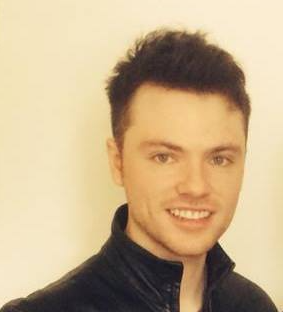 Jonathan R. Dowling, Ph.D., Goldsmiths, University of London
Jonathan R. Dowling, Ph.D., Goldsmiths, University of London
My academic and professional experience has focused on implementing, testing and developing RFT, ACT and newer contextual behavioural science approaches. I was awarded annual academic scholarships and received a first-class honours degree in Psychology at the National University of Ireland, Galway. Following this, I undertook a PhD at University College Dublin under the supervision of Dr. Louise McHugh which was funded by the Irish Research Council's Enterprise Partnership Scheme. As part of this scholarship I received additional funding and an applied traineeship under the supervision of clinical and organisational psychologists at The Performance Partnership Ltd for the duration of my PhD. Over the past two years I have worked as a postdoctoral research fellow with Professor Frank Bond at Goldsmiths, University of London. From my PhD, to my current role, my research has primarily focused on testing and developing theoretical CBS accounts of how people relate to one another, and act for a purpose. Through this work I have consulted with a wide range of organisations from the Health Service Executive and the Law Society of Ireland, to large multi-national law firms and the European Space Agency.
ALIVE and Thriving: The Evolution of CBS in Theory and Practice
ALIVE (Actively Living as an Individual, Vitally Engaged-in-relating in the World) is an RFT and CBS based model for predicting and influencing how people can learn to interact in their everyday lives so that they experience a greater sense of meaning and vitality. ALIVE helps people to learn how to respond to their ever-changing situations, so that they can live as the person they can-be. It emphasises that individuals can use their felt experiences (e.g., a sense of fear, isolation or belongingness), so that they can understand how ably they have lived in a way that really matters to them-as the person they wish to be. ALIVE can then help them to learn how to act more flexibly, so they can see possibilities for how to live more adept, significant lives in their shared world. Findings from over 10 studies, involving thousands of participants, will be considered. They indicate that by acting as a person wishes to be, they tend to have a better quality of life, relate and communicate with others more successfully, attain greater financial compensation at work, and are less suicidal, even after accounting for personality variables and IQ.
Thursday Evening (17:00-18:00)
Stefan Hofmann, Ph.D., Boston University 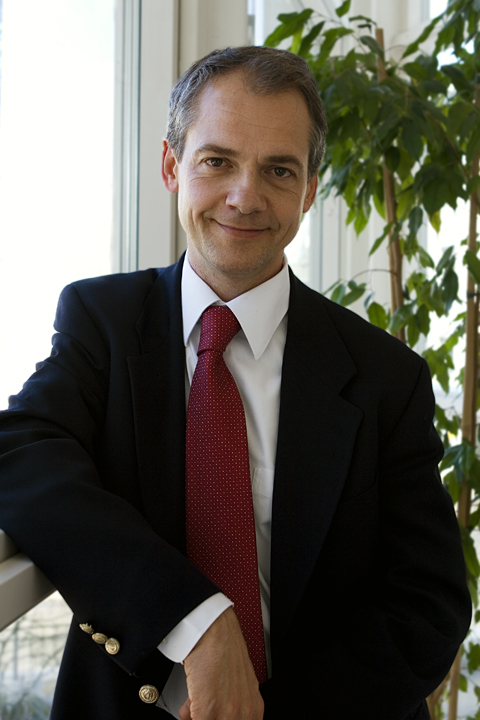
Stefan G. Hofmann, Ph.D. is professor of psychology at the Department of Psychological and Brain Sciences, where he directs the Psychotherapy and Emotion Research Laboratory. He has an actively funded research program studying various aspects of emotional disorders with a particular emphasis on anxiety disorders and cognitive behavioral therapy. He has won many prestigious professional awards, including the Aaron T. Beck Award for Significant and Enduring Contributions to the Field of Cognitive Therapy by the Academy of Cognitive Therapy and the Alexander von Humboldt Research Award. He is a fellow of the APA and APS and was president of various national and international professional societies, including the Association for Behavioral and Cognitive Therapies and the International Association for Cognitive Psychotherapy. He was also an advisor to the DSM-5 Development Process and a member of the DSM-5 Anxiety Disorder Sub-Work Group. Dr. Hofmann has been identified as a Highly Cited Researcher by Thomson Reuters. He is currently editor of Cognitive Therapy and Research and associate editor of Clinical Psychological Science. He has published more than 300 peer-reviewed journal articles and 15 books. For more information, visit http://www.bostonanxiety.org/
An Individual Complex Network Approach to Intervention Science.
Contemporary psychiatric classification systems assume that psychological problems are expressions of latent disease entities. However, there is little evidence to support this restrictive assumption. Critics point to the comorbidity problem, the heterogeneity within each diagnostic category, and many other issues that question the validity of the latent disease model. An alternative to this view is the complex network approach. This approach does not rely on the assumption that psychological problems are expressions of latent disease entities, but it does not rule it out either. Instead, the complex network approach assumes that mental health problems exist as systems of inter-connected elements, similar to a functional analytic approach with many variables (i.e., nodes) that may be associated through unidirectional, bidirectional, excitatory, and inhibitory links (i.e., edges). When applied to intervention science, the clinically most relevant tasks are (1) to develop an individual (i.e., person-specific) network that reflects the psychological problem space of the person, and (2) to disturb this individual network such that it turns from a maladaptive to an adaptive individual network structure. As is true for many complex networks, such a change can occur abruptly once the network reaches a tipping point. A dynamic complex network approach directly links classification to intervention. This approach could be used to predict treatment change, relapse, and recovery. It is concluded that the complex network approach offers a less restrictive and more externally valid alternative to the latent disease model, while offering exciting new directions for future research in psychiatry and is in line with personalized medicine.
Friday Morning (9:00-10:15)
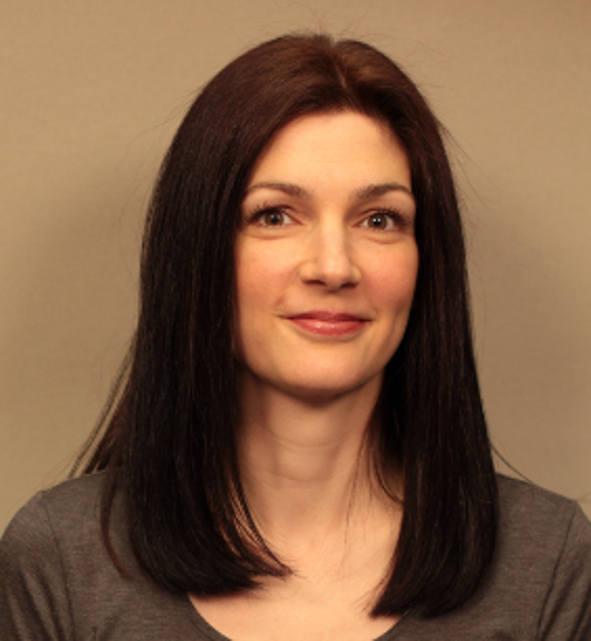 Christine Caldwell, Ph.D., University of Stirling
Christine Caldwell, Ph.D., University of Stirling
Christine Caldwell is a Professor of Psychology at the University of Stirling. She is regarded as a pioneer in the field of experimental cultural evolution, and is best known for the innovative methods she has developed for studying population-level patterns of cultural change and variation under laboratory conditions, involving human participants. A psychologist by training, with a PhD in primatology, Caldwell’s current work incorporates methods from comparative, cross-cultural, developmental, and cognitive psychology. Much of her research is geared towards understanding how and why it is that human cultures tend to accrue changes that are increasingly useful and/or efficient, relative to their precursors.
Harnessing the power and potential of human cultural evolution
Human culture supports the inter-generational accumulation of skills and knowledge, such that later generations can benefit vicariously from the cumulative experience of their predecessors. However, it remains unclear how exactly human social transmission supports such a facility, and why we do not seem to see it in other species. Furthermore, little attention has been paid to the question of how we might best harness such effects, to ensure we preserve and propagate valuable innovations, and avoid disseminating traits that might have detrimental group-level effects. In recent years, experimental approaches have enabled valuable progress in elucidating the conditions necessary for cumulative culture in humans. These studies have begun to shed light on the unresolved issues mentioned above. This plenary will discuss key concepts from the field of cultural evolution, and will review the experimental literature and the insights these studies have generated.
Friday Evening (17:00-18:00)
 Janet Helms, Ph.D., Boston College
Janet Helms, Ph.D., Boston College
Janet E. Helms is the Augustus Long Professor in the Department of Counseling, Developmental, and Educational Psychology and Director of the Institute for the Study and Promotion of Race and Culture at Boston College. She is past president of the Society of Counseling Psychology (Division 17 of the American Psychological Association [APA]). Dr. Helms is a Fellow in Division 17 (Counseling Psychology), Division 45 (Ethnic Diversity), and Division 35 (Psychology of Women) of the APA. In addition, she is a member of the Association of Black Psychologists, the American Psychological Society, and the American Educational Research Association. Dr. Helms has written over sixty empirical and theoretical articles and four books on the topics of racial identity and cultural influences on assessment and counseling practice.
The Power Dynamics of White Racial Identity in Social Interactions
A common theme in most societies of racial/ethnic diversity is that marginalized populations do not benefit from health care services as much as do their white or dominant-culture counterparts. In such societies, most services are provided either by white therapists or by intervention models based on race-free conceptualizations of human development. Service providers’ lack of sensitivity to cultural (né racial) factors have been blamed for the disparities, and there have been many calls for racially-responsive training. The supervision process is one site through which such training can occur. Nevertheless, race and related power dynamics are often invisible forces in the supervision process as well as the supervisor’s own development because they were not explicit foci in the supervisors’ training programs’ philosophies, missions, or climates. Yet unacknowledged racial dynamics may determine the quality of supervisory relationships and may account for why supervisees, attempting to cope with their own racial issues in supervision or address such issues with their clients, report being traumatized by their supervisors. Most white supervisors, who may have received training by which they guide their treatment interventions with clients and supervisees generally, have not received formal training in white racial identity or social interaction theories. Consequently, when faced with racial dynamics in supervision, each event becomes a new major challenge. This presentation, will (1) introduce white racial identity theory, (2) examine power dynamics in relationships, and (3) present social interaction theory.
Saturday Morning (9:00-10:15)
 Dermot Barnes-Holmes, Ph.D., Ghent University
Dermot Barnes-Holmes, Ph.D., Ghent University
Dr. Dermot Barnes-Holmes graduated from the University of Ulster in 1985 with a B.Sc. in Psychology and in 1990 with a D.Phil. in behavior analysis. His first tenured position was in the Department of Applied Psychology at University College Cork, where he founded and led the Behavior Analysis and Cognitive Science unit. In 1999 he accepted the foundation professorship in psychology and head-of-department position at the National University of Ireland Maynooth. In 2015 he accepted a life-time senior professorship at Ghent University in Belgium. Dr. Barnes-Holmes is known internationally for the analysis of human language and cognition through the development of Relational Frame Theory with Steven C. Hayes, and its application in various psychological settings. He was the world's most prolific author in the experimental analysis of human behavior between the years 1980 and 1999. He was awarded the Don Hake Translational Research Award in 2012 by the American Psychological Association, is a past president and fellow of the Association for Contextual Behavioral Science, is a fellow of the Association for Behavior Analysis, International, is a recipient of the Quad-L Lecture Award from the University of New Mexico and most recently became an Odysseus laureate when he received an Odysseus Type 1 award from the Flemish Science Foundation in Belgium.
 Christine Caldwell, Ph.D., University of Stirling
Christine Caldwell, Ph.D., University of Stirling
Christine Caldwell is a Professor of Psychology at the University of Stirling. She is regarded as a pioneer in the field of experimental cultural evolution, and is best known for the innovative methods she has developed for studying population-level patterns of cultural change and variation under laboratory conditions, involving human participants. A psychologist by training, with a PhD in primatology, Caldwell’s current work incorporates methods from comparative, cross-cultural, developmental, and cognitive psychology. Much of her research is geared towards understanding how and why it is that human cultures tend to accrue changes that are increasingly useful and/or efficient, relative to their precursors.

Steven C. Hayes, Ph.D., University of Nevada
Steven C. Hayes is Nevada Foundation Professor in the Department of Psychology at the University of Nevada. An author of 44 books and over 625 scientific articles, his career has focused on an analysis of the nature of human language and cognition and its application of the understanding and alleviation of human suffering. He is the developer of Relational Frame Theory, an account of human higher cognition, and has guided its extension to Acceptance and Commitment Therapy (ACT). Dr. Hayes has been President of Division 25 of the APA, the Association for Behavioral and Cognitive Therapies, and the Association for Contextual Behavioral Science. He was the first Secretary-Treasurer of the Association for Psychological Science, and served a 5-year term on the National Advisory Council for Drug Abuse in NIH. His work has been recognized by several awards including the Exemplary Contributions to Basic Behavioral Research and Its Applications from Division 25 of APA, the Impact of Science on Application award from the Society for the Advancement of Behavior Analysis, and the Lifetime Achievement Award from the Association for Behavioral and Cognitive Therapy. Google Scholar data ranks him as among the top most cited scholars in all areas of study (http://www.webometrics.info/en/node/58). For more information visit www.stevenchayes.com.
Stefan Hofmann, Ph.D., Boston University
Stefan G. Hofmann, Ph.D. is professor of psychology at the Department of Psychological and Brain Sciences, where he directs the Psychotherapy and Emotion Research Laboratory. He has an actively funded research program studying various aspects of emotional disorders with a particular emphasis on anxiety disorders and cognitive behavioral therapy. He has won many prestigious professional awards, including the Aaron T. Beck Award for Significant and Enduring Contributions to the Field of Cognitive Therapy by the Academy of Cognitive Therapy and the Alexander von Humboldt Research Award. He is a fellow of the APA and APS and was president of various national and international professional societies, including the Association for Behavioral and Cognitive Therapies and the International Association for Cognitive Psychotherapy. He was also an advisor to the DSM-5 Development Process and a member of the DSM-5 Anxiety Disorder Sub-Work Group. Dr. Hofmann has been identified as a Highly Cited Researcher by Thomson Reuters. He is currently editor of Cognitive Therapy and Research and associate editor of Clinical Psychological Science. He has published more than 300 peer-reviewed journal articles and 15 books. For more information, visit http://www.bostonanxiety.org/
 Carmen Luciano, Ph.D., University of Almeria, Spain
Carmen Luciano, Ph.D., University of Almeria, Spain
Carmen Luciano, Ph.D., is Professor of Psychology and Director of the Functional Analysis Doctoral Program at University of Almeria, Spain. She is also Director of Master in Contextual Psychology in Madrid Institute of Contextual Psychology (MICPSY). She focuses her work in tracking the connection of philosophical, basic and applied dimensions as a contextual integrative tree of knowledge connected to others. She has directed thirty doctoral theses and has published pivotal papers in Behavior Analysis, RFT and ACT. She published the first Spanish ACT book in 2002 with Kelly Wilson and a new book is being on its way. She has a vibrating and creative style both while teaching, doing research and working with clients.
David Sloan Wilson, Ph.D., University of Binghamton
David Sloan Wilson is SUNY Distinguished Professor of Biology and Anthropology at Binghamton University. He has made fundamental contributions to evolutionary science and its applications to human affairs. He is well known within the ACBS community for working with Steve Hayes and others to integrate evolutionary science with contextual behavioral science. His most recent books are Evolution and Contextual Behavioral Science (co-edited with Steve Hayes) and Evolving the Future: Completing the Darwinian Revolution.
Future Directions in the Role of Symbolic Meaning in Intentional Human Evolution
Evolutional and contextual behavioral perspectives have become increasingly close over the last several years, but while all agree that meaning, purpose, consciousness, and intention has special relevance to human beings, the harder core of the evolutionary and behavioral community have been nervous about applying these concepts to the experimental analysis of their own domains. That appears to be changing. Evolutionists agree that consciousness and meaning systems evolved, but some are beginning to argue that human beings can evolve "on purpose." Behaviorists agree that purpose and consciousness are behavioral phenomena, but some are beginning to argue that these processes alter the operations of contingencies of reinforcement. This set of changes creates risks but also opportunities for contextual behavioral science. In particular, it means that CBS ideas are now of more direct relevance to cognitive perspectives, both applied and basic, on such issues as "expectancy" or "intention;" and perhaps that contextual behavioral ideas can be used to create forms of applied evolution science that have previously not existed. In this panel a group of experts in cognitive behavior therapy, evolution science, relational frame theory, behavior analysis discuss these issues so as to explore the possibilities of connection and collaboration inside new perspectives on the role of symbolic meaning in intentional human evolution.
Saturday Evening (17:00-18:00)
Louise Hayes, Ph.D., The University of Melbourne & Orygen Youth Mental Health
Louise Hayes is a clinical psychologist, author, and speaker. She is a Senior Fellow with The University of Melbourne and Orygen, The National Centre of Excellence in Youth Mental Health. She is also a peer reviewed Acceptance and Commitment Therapy/Training (ACT) trainer. She is the co-author of the best-selling book, Get Out of Your Mind and into your Life for Teenagers: A Guide to Living an Extraordinary Life, and also – The Thriving Adolescent: Using Acceptance and Commitment Therapy and Positive Psychology to Help Teens Manage Emotions, Achieve Goals, and Build Connection. A new book for teenagers using DNA-V will be out soon. Together with Joseph Ciarrochi she conducts research and treatment development; her latest work is DNA-v, a treatment model based on CBS. Louise is also an active clinician, working with adult and adolescents in private practice. She is also an active humanitarian, taking mental health professionals into the Himalaya to develop their mindfulness skills and raising funds for poor children in remote Nepal. For more information on Louise go to – www.louisehayes.com.au or www.thrivingadolescent.com
How we can use the broad platform of CBS to build depth into models of human development
The talk will describe how contextual behavioural science, as a science with breadth and depth, can be applied far wider than the common ACT hexagon model. This is especially so when we apply it to the lifespan and adaptation of humans. A broad CBS focus allows us to consider how growth is influenced by developmental life history, including: attachment to others, behavioural and symbolic learning, social, cultural and physical environments. A broad focus requires us to step out of our known literature and applications and into other theoretical and empirical literature. In this talk, we will look at how this approach was taken to build a cohesive CBS model of human development and growth called DNA-v (Hayes, L & Ciarrochi, J. 2015). The talk will share how difficult it can be to step out of what we know, and how much growth there is once we do. With DNA-V we have begun to examine growth and development as a lifelong task, from infancy to death.
Invited Speakers
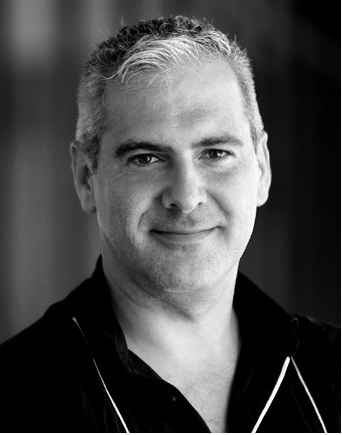 Jan De Houwer, Ph.D., Ghent University
Jan De Houwer, Ph.D., Ghent University
After receiving his PhD from the University of Leuven (Belgium) in 1997, Jan De Houwer was a Lecturer at the University of Southampton (UK) from 1998 to 2001. Since 2001, he is works at Ghent University (Belgium) where he heads the Learning and Implicit Processes Laboratory. His research is related to the manner in which spontaneous (automatic) preferences are learned and can be measured. Regarding the learning of preferences, he focuses on the role of stimulus pairings (associative learning). Jan De Houwer (co-)authored more than 300 publications in international journals including “Psychological Bulletin” and “Behavioral and Brain Sciences”. He was co-editor of the journal “Cognition and Emotion” and is a member of the editorial board of several journals including “Journal of Experimental Psychology: General”, “Psychological Bulletin”, and “Personality and Social Psychology Review”.
Complex learning: How multiple environmental regularities jointly influence behavior
Learning can be defined as the impact of environmental regularities on behavior. Complex learning refers to situations in which multiple regularities jointly influence behavior. One possibility is that the effect of one regularity is moderated by another regularity, as is the case when two regularities intersect (i.e., have elements in common). A second possibility is that meta-regularities (regularities in the presence of regularities) influence behavior. Meta-regularities are particularly interesting because they allow for relational learning, that is, learning about the relation between elements. For instance, just as stimuli can acquire different functions (e.g., function as a discriminative stimulus or contextual relational cue) so too can relations. This idea opens up new questions about the conditions under which relations can acquire functions. Moreover, it is in line with the proposal that seemingly simple forms of learning are in fact instances of arbitrarily applicable relational responding.
 Andrew Gloster, Ph.D., University of Basel
Andrew Gloster, Ph.D., University of Basel
Andrew Gloster is a professor at the University of Basel, Switzerland where he heads the Division of Clinical Psychology and Intervention Science. He has published over 80 scientific papers and several books and treatment manuals. His contextual behavioral science research program has empirically tested numerous aspects of the CBS model including clinical trials, public health, biological, and genetic variables, pro-social behaviors in groups, and technological interventions. He is a licensed psychotherapist, a passionate mentor and trainer, and President of the Association of Contextual Behavioral Science Foundation.
From Individuals, to Groups, and up to the Population: Implementing Intervention Science Across Multiple Contexts
Contextual science aims to understand human behavior, including behavior involved in ACT therapy. To date, a large majority of CBS research has focused on ACT trials. This growth is both important and impressive. But how well do CBS principles apply beyond the therapy room? This question will be explored by examining empirical evidence across multi-levels of analysis and multiple contexts. A Multi-level approach to scientific development holds the promise that a few salient principles will apply across contexts of human behavior and that when they are targeted, will reliably result in useful change. The multi-level approach is not without challenges, however. In this talk I will review empirical studies from across levels of analysis that highlight the promises and challenges of this approach. For example, studies that included biological variables will be examined to identify clues about conditions that promote vs. inhibit psychological flexibility. Epidemiological evidence will be presented that explores how and when the CBS model applies at the population level. Evidence from clinical trials will be examined that offers insight about how to intervene with treatment non-responders and simultaneously explore the conditions that promote implementation at the system level. Finally, these elements will be tied together by examining a micro-intervention that may be utilized with small groups to promote pro-sociality.
Inez Myin-Germeys, Ph.D., KU Leuven, Center for Contextual Psychiatry
Inez Myin-Germeys studied Psychology at the KU Leuven in Belgium and then moved to Maastricht University in the Netherlands were she did her PhD on the topic 'The primacy of context'. In 2010 she was appointed full professor of Ecological Psychiatry at Maastricht University.
In 2015, she moved back to KU Leuven where she started the Center for Contextual Psychiatry, a research center with currently about 30 researchers. She is an international authority in the field of Experience Sampling Methodology and in the field of psychosis research. She has published over 350 papers and was recipient of an ERC consolidator grant.
A contextual approach to psychiatry: Momentary Assessment and Intervention
Psychopathological symptoms are natural experiences emerging in the realm of ordinary daily life, often in interaction with contextual factors. In the mental health field, there is a growing awareness that the study of these symptoms in the context of everyday life, using Experience Sampling Methodology, may provide a powerful and necessary addition to more conventional research approaches. In my talk, I will first focus the assessment of the capacity for social interaction as an important factor in the development of psychopathology. I will discuss these findings in light of the conceptual development of embodied and embedded cognition.
Next, I will focus on the added value of digital technology to augment the effects of therapy in the daily life of patients. We have developed Acceptance and Commitment Therapy in Daily Life, in which patients will be provided with an app after each session with their therapist to practice and integrate these new skills in their normal daily life. I will present the first results of the INTERACT study, a randomized clinical trial of ACT in DL in 150 individuals at the early stages of psychosis.
 Ruth Anne Rehfeldt, Ph.D., Southern Illinois University
Ruth Anne Rehfeldt, Ph.D., Southern Illinois University
Dr. Rehfeldt holds a BA in psychology from the University of Puget Sound in Tacoma, WA (1993), and masters and Ph.D. degrees from the University of Nevada (1998), where she was a student of Dr. Linda J. Hayes. Dr. Rehfeldt has published over 100 articles and book chapters in behavior analysis, many of which included students as co-authors. Her expertise focuses specifically on basic and applied investigations of verbal behavior, Relational Frame Theory, and Acceptance and Commitment Therapy. She co-edited a book with Yvonne Barnes-Holmes entitled, Derived Relational Responding: Applications for Learners with Autism and other Developmental Disabilities, and is currently co-editing a text on applied behavior analysis of language and cognition with Jonathan Tarbox, Mitch Fryling, and Linda Hayes. Dr. Rehfeldt served as the editor and business manager for The Psychological Record for 12 years. She is or has been an editorial board member for a number of behavior analytic journals, including Journal of Applied Behavior Analysis and The Analysis of Verbal Behavior, and has held a number of leadership positions within the Association for Behavior Analysis International. Dr. Rehfeldt has been a professor in the Behavior Analysis and Therapy program at Southern Illinois University for nineteen years, and is currently Interim Director of the Rehabilitation Institute. She is also the coordinator of University accreditation and is a trained peer reviewer with the Higher Learning Commission, which is a regional institutional accreditor. Dr. Rehfeldt has won a number of teaching and research awards during her time at Southern Illinois University.
Toward an Effective and Relevant Science of Behavior
The controversy over whether behavior analysts should not only examine, but intervene on, private events has not ended. Reluctance to incorporate analyses of covert language processes into applied behavior analyses has limited our field’s scope. Large societal problems flourish, often due to the unique abilities of humans to verbally discount delayed and probabilistic outcomes. The purpose of this presentation is to discuss how the concepts encompassed by functional contextualism can be applied to several very diverse areas of social concern, including: 1) staff optimism and compassion in human service settings; 2) health prevention behaviors; and 3) marine conservation. I will articulate the often underappreciated relationship between relational learning and psychological inflexibility and experiential avoidance, and will describe how concepts such as acceptance, values, and committed actions can have an impact in building the adaptive repertoires needed to resolve a number of small and large-scale issues of social significance.
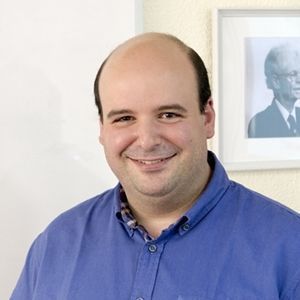 Francisco J. Ruiz, Fundación Universitaria Konrad Lorenz
Francisco J. Ruiz, Fundación Universitaria Konrad Lorenz
Francisco J. Ruiz received his doctoral degree in Psychology in Universidad de Almería (Spain) under the supervision of Dr. Carmen Luciano. He worked in several Spanish universities before accepting a professor position in Fundación Universitaria Konrad Lorenz (Colombia) in 2015. In this position, he designed one of the first Ph.D. programs in Psychology in the country and has been awarded as “Distinguished Researcher” of the institution. He has published more than 60 scientific articles focused on Acceptance and Commitment Therapy (ACT) and Relational Frame Theory (RFT). During the last few years, he and his colleagues are developing a model of ACT that focuses on dismantling dysfunctional patterns of repetitive negative thinking (RNT). This model incorporates previous research on Clinical RFT and new empirical developments.
Interfacing Research on Clinical RFT and ACT: The Case of RNT-Focused ACT
A unique characteristic of ACT is the possibility of being updated and enhanced according to the clinically-relevant research conducted within RFT. However, empirical research on Clinical RFT is still relatively scarce and the findings are being incorporated in ACT texts and protocols in a slow pace. This invited address aims to present a historical overview of the empirical research on Clinical RFT and its recent developments to show how these findings can be integrated into ACT. This will be discussed in the context of the development of a model of ACT that focuses on dismantling dysfunctional patterns of repetitive negative thinking (RNT) such as worry and rumination. This model is called RNT-focused ACT and interfaces previous research on Clinical RFT and new empirical and theoretical developments. The empirical evidence of this model already accumulates ten clinical studies that have shown the high efficacy of (very) brief RNT-focused ACT protocols in areas such as adult and children emotional disorders, clinical psychology trainees, gifted children with school difficulties, and adolescents with deficits in interpersonal problem-solving skills.
